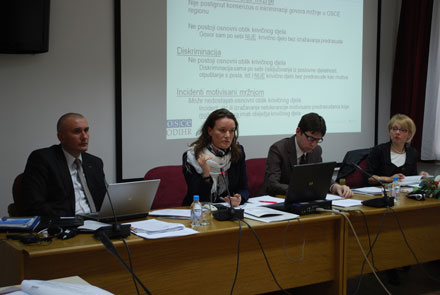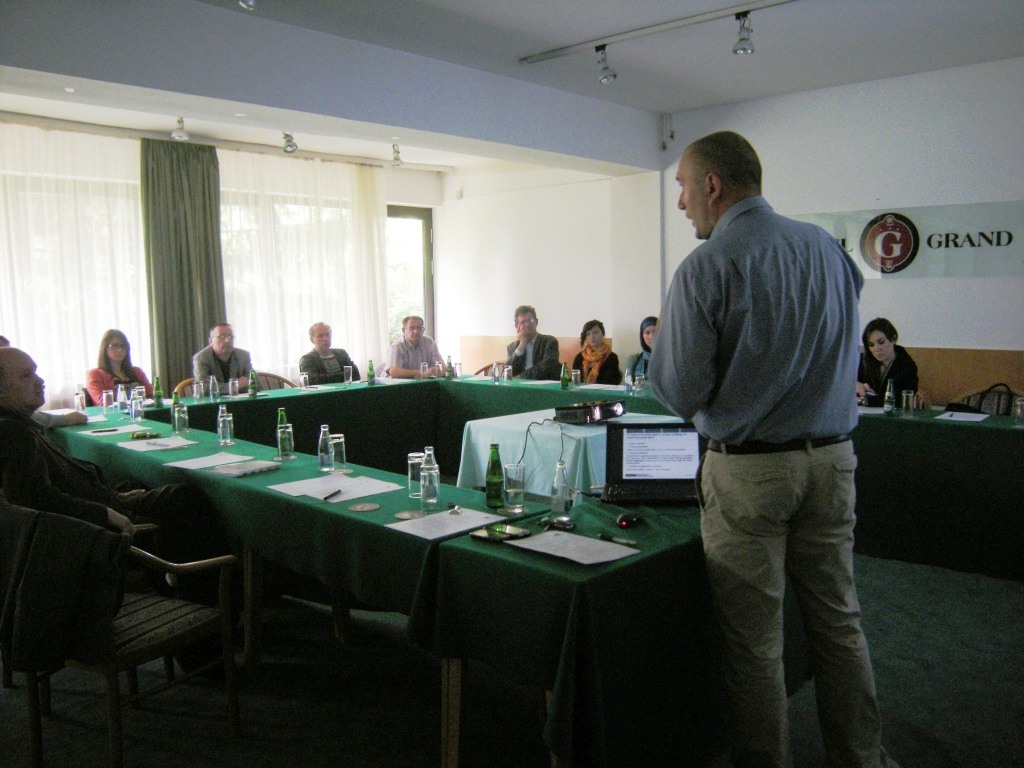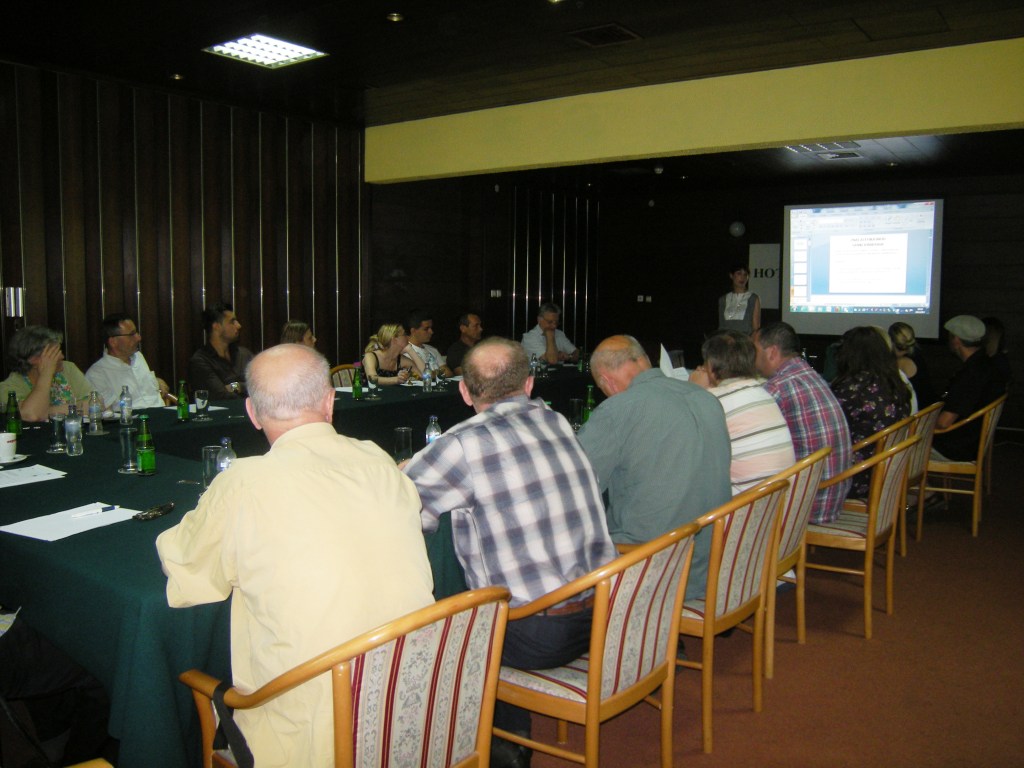On May 24, 2013, in the training room of the Center for the Education of Judges and Prosecutors in the Federation of Bosnia and Herzegovina (CEST FBiH), according to the 2013 Initial Training and Professional Development Program of CEST FBiH, seminar “Hate Crimes” was organized. The seminar was jointly organized by CEST FBiH and the OSCE-ODIHR. The seminar was organized to train judges on the specifics of prosecuting hate crimes.
On the topics of “Hate Crimes: What They Are and Why Their Prosecution is Important” and the International and Regional Framework, Ms. Joanna Perry (ODIHR) spoke about the legislative framework in BiH governing hate crime. Its implementation was discussed by legal advisers of the OSCE Mission to BiH: Mr. Saša Bojanić and Ms. Amra Hamidović. Two participants presented the use of prejudice indicators through case studies, and presented a report from the OSCE Mission to BiH entitled “Fighting Hate Crimes: An Analysis of Incidents Motivated by Prejudice in BiH, with Recommendations”. The seminar was opened by Ms. Rebecca McCallum, Legal Advisor to the OSCE Mission and Mr. mr. sci. iur. Davor Trlin, Expert Associate for Program Cooperation with International Organizations.
A total of 17 participants were present, including representatives of the OSCE Mission to the Republic of Serbia.
In order to qualify a particular crime as a hate crime, two criteria must be met: 1. The act must be prescribed by law as a crime and 2. It must be “motivated by prejudice”, which means that the offender has chosen victim based on a characteristic common to a particular group, such as race, religion, nationality, language, or sexual orientation.
Hate crimes send a strong message of intolerance to the victim and the group to which he or she belongs, which can create feelings of insecurity and distrust within the community. Effective prosecution of hate crimes is important in order to send a message that such offenses will not be tolerated.
Hate crimes are a problem in every society, and they are a particular problem in societies recovering from violent conflict. The education of judicial office-holders aims at greater efficiency in prosecuting these types of crimes.
This is the second seminar on this topic within a year that the same co-organizers have realized. The first, with the participation of the Center for the Education of Judges and Prosecutors in Republika Srpska, was organized on September 6 and 7, 2012 at the Hotel Sarajevo, Sarajevo, which was attended by prosecutors. The speakers and educators were: Mr. Larry Olomofe, Racism and Xenophobia Counselor, and Training Coordinator (ODIHR), Ms. Carolyn Bys, Hate Crimes Officer (ODIHR), Mr. Glyn Morgan, Expert Advisor (ODIHR), and Mr. Saša Bojanić, Expert Advisor (ODIHR).
A total of 21 prosecutors were present, namely: RS Prosecutor’s Office, FBiH Prosecutor’s Office, Banja Luka District Prosecutor’s Office, Bijeljina District Prosecutor’s Office, Travnik Cantonal Prosecutor’s Office, Zenica-Doboj Cantonal Prosecutor’s Office, Sarajevo Cantonal Prosecutor’s Office, Posavina Canton Cantonal Prosecutor’s Office, Una-Sana Caonton Cantonal Prosecutor’s Office, Tuzla Canton Cantonal Prosecutor’s Office, Herzegovina-Neretva Canton Cantonal Prosecutor’s Office, the Prosecutor’s Office of the Brčko District of BiH.
The seminar for prosecutors covered the topics: “Experiences from the local community”, “Hate crimes: What they are and why their prosecution is important”, “International and regional framework”, “BiH legislative framework governing criminal offenses of hate crime”, “Implementation of BiH laws governing hate crimes”, “Identifying hate crimes: Using prejudice indicators”, “Getting to know the differences”, “Practice examples I: Prejudice indicators and initiating proceedings for hate crime: Working Groups”, “Case Studies I: Indicators of prejudice and initiation of hate crime: Presenting reports to all participants”, “Examples of Practice II: Evidence indicating motive in prosecuting crimes hate groups: working groups”, “Practice Examples II: Evidence indicating to a motive prosecuting hate crimes: presenting reports to all participants.”
After these activities were held, the experts of the CEST FBiH Expert Service conducted an insight into the evaluation questionnaires, which were filled out anonymously by the participants. Participants felt that after this seminar, the facts or possibly indications that may exist with certain (prosecuted) persons were clearer to them. They believe that they will pay more attention to the hate motive when conducting an investigation. They have stated that a large number of prosecutors in their work did not encounter this type of crime. They would recommend this training to their colleagues and consider it to be part of a compulsory mandatory training plan and program.
Text and photo downloaded from: http://www.fbih.cest.gov.ba/



